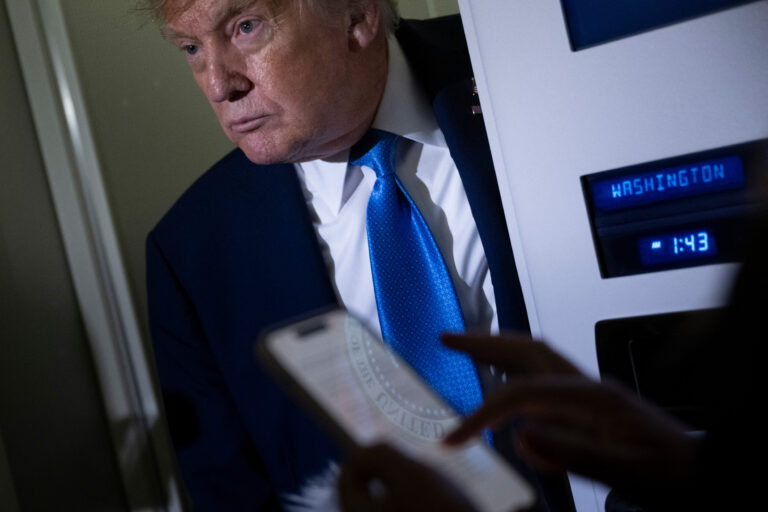Russia said the use of a tactical nuclear weapon by the U.S. in Iran would be “catastrophic” after a report that it had not been ruled out as an option for President Donald Trump, who is considering joining Israel’s strikes.
The question is whether a bunker-buster bomb would be sufficient to destroy Iran’s Fordow uranium enrichment facility, which is built deep into a mountain and vital to any ambitions to build a nuclear bomb, or if it would take a tactical nuclear weapon to finish the job.
“There is a lot of speculation now,” said Dmitry Peskov, spokesman for Russian President Vladimir Putin, state news agency Tass reported. “Such a development of events would be catastrophic, but there is so much speculation that it is actually impossible to comment on it.”
The Guardian had reported that tactical nuclear weapons were considered more capable of destroying Fordow given its depth, citing unnamed defense officials, but that Trump was not presented with or considering them as an option.

BRENDAN SMIALOWSKI/AFP via Getty Images
Later, Fox News reported that all military options were still on the table for the U.S., citing an unnamed top official, but that the military is very confident bunker-buster bombs could destroy Fordow.
There has been no official comment from the U.S. about whether the use of a tactical nuclear weapon is being considered.
When approached by Newsweek, the Pentagon declined to comment and pointed to a recent statement made by Secretary of Defense Pete Hegseth, who said on June 16 that he had directed “the deployment of additional capabilities” to the Middle East.
“Protecting U.S. forces is our top priority and these developments are intended to enhance our defensive posture in the region,” Hegseth said.
Trump is giving himself two weeks to decide if he should strike Iran, a window of time for Tehran to avert such a fate by abandoning its nuclear program. It denies seeking to build a nuclear bomb, saying the program is for energy purposes.
But Iran has enriched uranium to a level very close to that required for a bomb, and well beyond what is needed for civilian energy. Trump says Iran cannot be allowed to build a nuclear bomb.
Weapons at Trump’s Disposal
The principal U.S. bunker-buster weapon is the GBU-57 Massive Ordnance Penetrator (MOP), which weighs approximately 30,000 pounds and is designed to penetrate up to 200 feet of earth or 60 feet of concrete before detonation.
The MOP is currently carried by B-2 Spirit bombers and is intended for use against deeply buried hardened targets, such as Iran’s Fordow uranium enrichment facility.
According to an official Air Force description, the GBU-57 “translates precision and massive power for strategic target neutralization.”
The U.S. maintains an estimated 100 tactical nuclear weapons deployed in Europe, primarily as B61 gravity bombs, according to a Federation of American Scientists’ report.
Its total estimated nuclear stockpile, including strategic weapons and those not deployed, is 3,708 warheads.
Tactical nuclear weapons typically have lower explosive yields than strategic nuclear weapons and are intended for use on the battlefield against military targets.
They are designed for short-range delivery systems and regional conflicts, in contrast to strategic weapons, which are aimed at high-value targets such as cities, infrastructure, and military command centers in long-range, large-scale warfare.
Nuclear Weapons Law
The use of nuclear weapons by states is governed by a network of international treaties and customary legal norms.
The Treaty on the Non-Proliferation of Nuclear Weapons (NPT), to which both the U.S. and Iran are parties, restricts the spread of nuclear arms but does not explicitly prohibit their use in warfare.
While there is no categorical ban under international law, the use of nuclear weapons would be subject to international humanitarian law (IHL), which requires adherence to the principles of distinction, proportionality, and necessity—especially regarding civilian harm.
In its 1996 advisory opinion, the International Court of Justice did not find the use of nuclear weapons to be outright illegal in all circumstances but emphasized that their use would generally violate IHL, while leaving open a narrow possibility in extreme self-defense scenarios.


